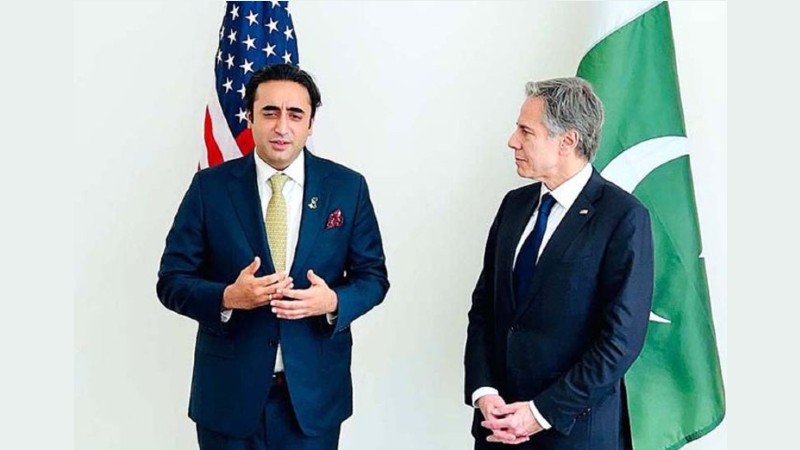Letting the alliance further deteriorate makes little sense, Bilawal Bhutto-Zardari told Washington Post’s Josh Rogin
By Staff Reporter
WASHINGTON DC: Foreign minister Bilawal Bhutto-Zardari is making a sound case for a reset in Pakistan-US relations, a prominent Washington Post opinion writer has said.
Bhutto “believes that both nations can learn from the mistakes of the past”, Josh Rogin wrote. “Besides, he told me, letting the alliance further deteriorate makes little sense.”
Josh Rogin is a columnist for the Global Opinions section of the Washington Post and a political analyst with CNN. Previously, Josh has covered foreign policy and national security for Bloomberg View, Newsweek, The Daily Beast, Foreign Policy magazine, Congressional Quarterly, Federal Computer Week magazine, and Japan’s Asahi Shimbun.
“After years of mutual distrust between Washington and Islamabad, there are plenty of reasons to be skeptical of the idea that either side is capable — much less willing — to do the hard work of reviving the alliance”, said Rogin. “But the basic argument for trying again is sound.”
He quotes Bhutto-Zardari: “The way in which this relationship progressed in recent years doesn’t serve the interests of the people of Pakistan, but it also doesn’t serve the interests of the people of America. And I still believe that Pakistan and the United States agree on far more than we disagree on.”
The author notes that the main lesson Zardari took from his family’s epic battles with other powerful Pakistani institutions was that change should be pursued slowly and through negotiation, not confrontation.
He then argues that perhaps this strategy of lowering short-term expectations and focusing on incremental progress could be applied to the US-Pakistan relationship as well.
He says Khan’s Imran Khan’s accusations of a US conspiracy to overthrow his government are ridiculous, but notes that they play off an anti-Americanism deep-rooted in parts of the Pakistani polity. Equally, there’s no strong domestic political constituency in Washington for improving US-Pakistan ties.
The FM told Rogin in an interview there are reasons to think progress towards building better US-Pakistan ties is possible. Now that the war in Afghanistan, the main issue of contention between Islamabad and Washington, is over, “the two countries’ interests there are largely aligned around encouraging the Taliban to behave better and bringing stability to the Afghan people”.
“Now we can move beyond that disagreement without having to go back and litigate the past,” Bhutto-Zardari said. “There’s a lot more common ground now and less fog of war.”
Rogin wrote:
“Diversifying the relationship beyond military issues might also help, he said. In his meeting with Secretary of State Antony Blinken in New York last week, they discussed moving toward more cooperation on trade, climate change, tech investment and food security.
“Skeptics in Washington will quickly point out that the ultimate power in Pakistan still seems to reside with the generals and spy chiefs. Many in Washington are rightly critical of Pakistan for failing to condemn China’s human rights abuses and refusing to join Western sanctions against Russia for invading Ukraine.”
He notes how unrealistic expectations on both sides are a big part of why the Pak-US relationship got so bad in the first place.
“If we’re going to let our emotions get in the way of a constructive relationship, then we would both be cutting off our nose to spite our face,” Bhutto-Zardari told Rogin. “How do we tackle that? The only answer is engagement.”
[ENDS]
Copyright © 2021 Independent Pakistan | All rights reserved




